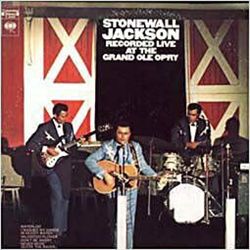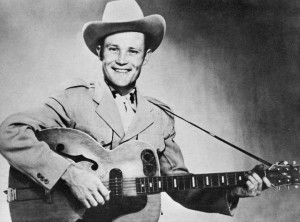” named for Monroe’s home state of Kentucky. Monroe’s performing career spanned 60 years as a singer
Music Charts Magazine Celebrity Interview with Grand Ole Opry Star Stonewall Jackson ( by Big Al Weekley )
Stonewall Jackson (born November 6, 1932) is an American country singer and musician who achieved his greatest fame during country’s “golden” honky tonk era in the 1950s and early 1960s.
Stonewall is not a nickname; he was named after (and claimed to be a descendant of) the Confederate Gen. Thomas “Stonewall” Jackson. His father died when he was two and his mother moved the family to South Georgia. Jackson grew up there working on his uncle’s farm. Jackson enlisted in the Navy in 1950 and was discharged in 1954. He moved to Nashville, Tennessee in 1956.
Jackson became the first artist to join the Grand Ole Opry before obtaining a recording contract. He toured with Ernest Tubb, who became his mentor. Jackson signed to Columbia Records and debuted in 1958 with “Don’t Be Angry”. The song did not score in the country music top 40, but it got him recognition.
His breakthrough came in the country Top 40 in late 1958, with a song written by a young George Jones, “Life to Go”. It peaked at No. 2 in early 1959 and his follow-up record, “Waterloo”, was No. 1
for five weeks and crossed over into the Top 40 of the Billboard Hot 100 chart, where it reached No. 4. The track also reached No. 24 in the UK Singles Chart in July 1959. It sold over one million copies, and was awarded a gold disc.
From 1958 to 1971, Jackson had 35 Top 40 country hits. Along with Ray Price, Jackson is considered a cornerstone, after Hank Williams and Lefty Frizzell, of the hard-driving honky tonk sound in the late 1950s and early 1960s.
Read more at:
http://en.wikipedia.org/wiki/Stonewall_Jackson_(musician)
Click the play button below to listen to the Celebrity Interview with Stonewall Jackson
 William Smith Monroe (September 13, 1911 – September 9, 1996) was an American musician who created the style of music known as bluegrass, which takes its name from his band, the “Blue Grass Boys,” named for Monroe’s home state of Kentucky. Monroe’s performing career spanned 60 years as a singer, instrumentalist, composer and bandleader. He is often referred to as The Father of Bluegrass.
William Smith Monroe (September 13, 1911 – September 9, 1996) was an American musician who created the style of music known as bluegrass, which takes its name from his band, the “Blue Grass Boys,” named for Monroe’s home state of Kentucky. Monroe’s performing career spanned 60 years as a singer, instrumentalist, composer and bandleader. He is often referred to as The Father of Bluegrass.
”Uncle Pen,” was recorded in 1950, and the 1972 album, “Bill Monroe’s Uncle Pen.” On that album, Monroe recorded a number of traditional fiddle tunes he had often heard performed by Vandiver. Uncle Pen has been credited with giving Monroe “a repertoire of tunes that sank into Bill’s aurally trained memory and a sense of rhythm that seeped into his bones.” Also significant in Monroe’s musical life was Arnold Shultz, an influential fiddler and guitarist who introduced Monroe to the blues.
Read more: http://en.wikipedia.org/wiki/Bill_Monroe
Listen to Bill Monroe’s “Uncle Pen” in the player below:

